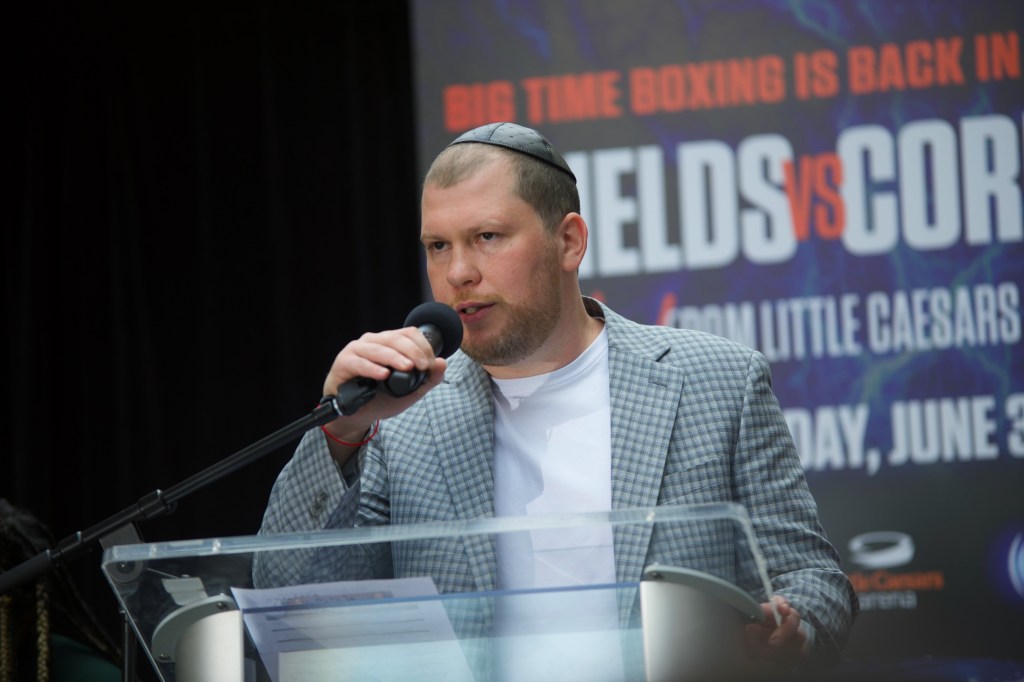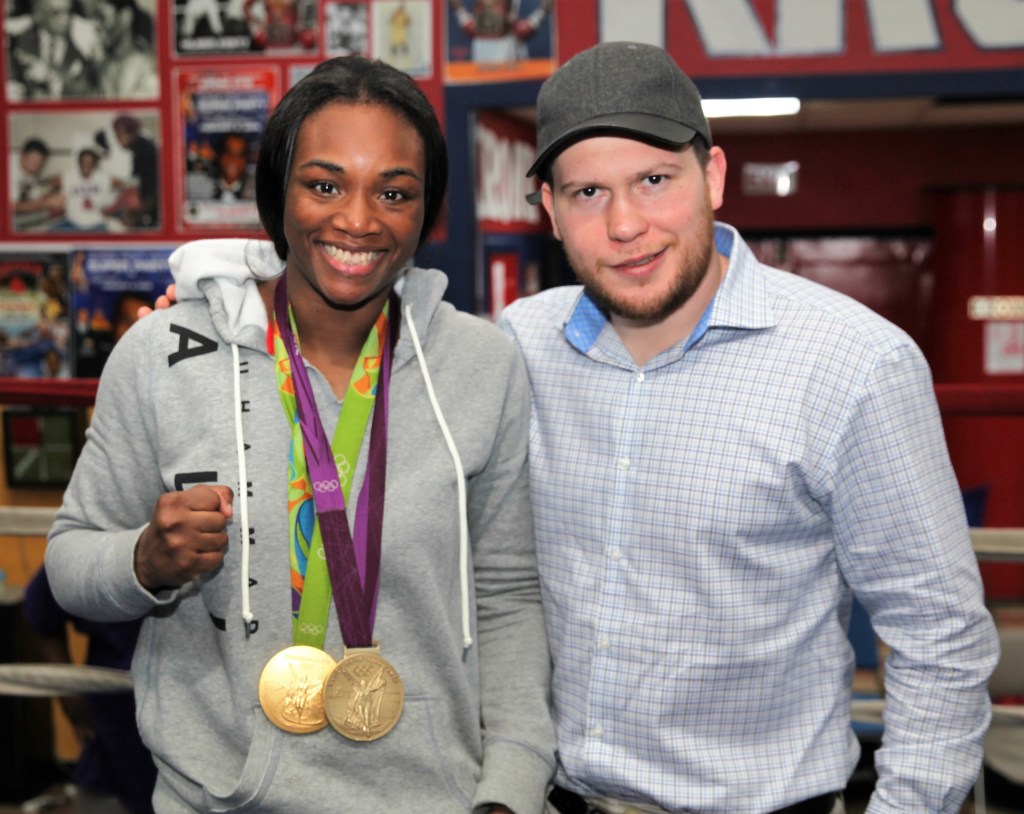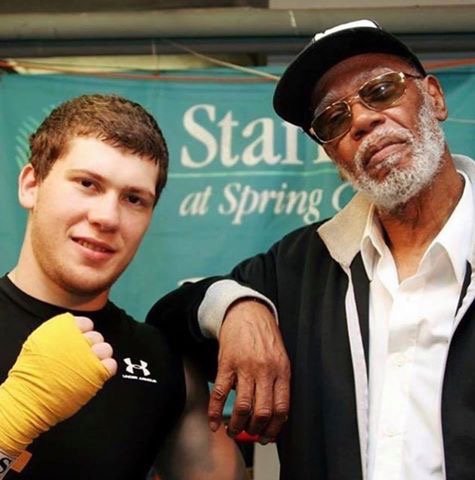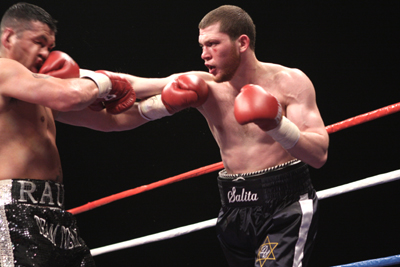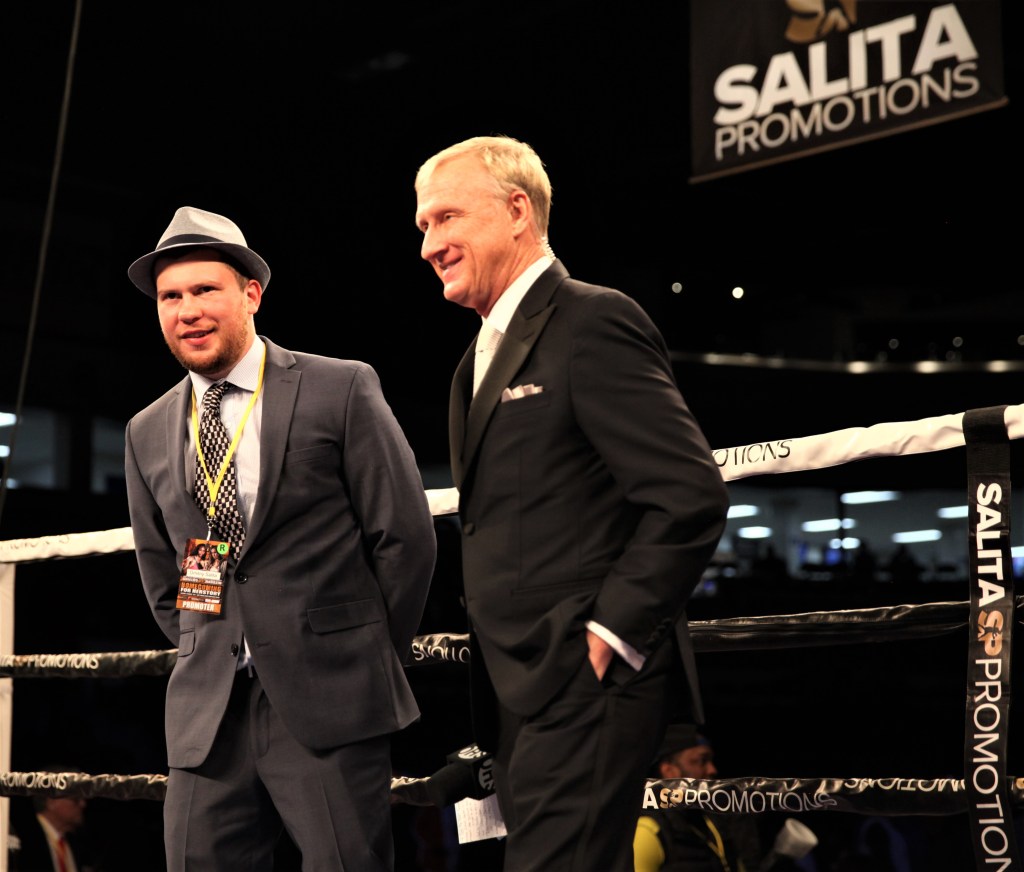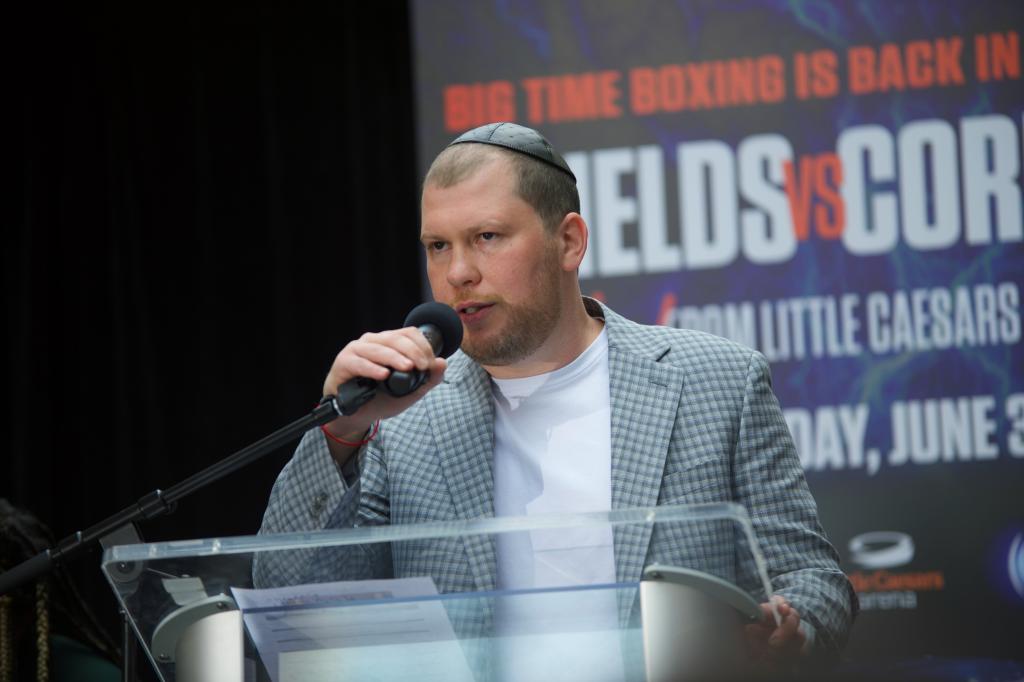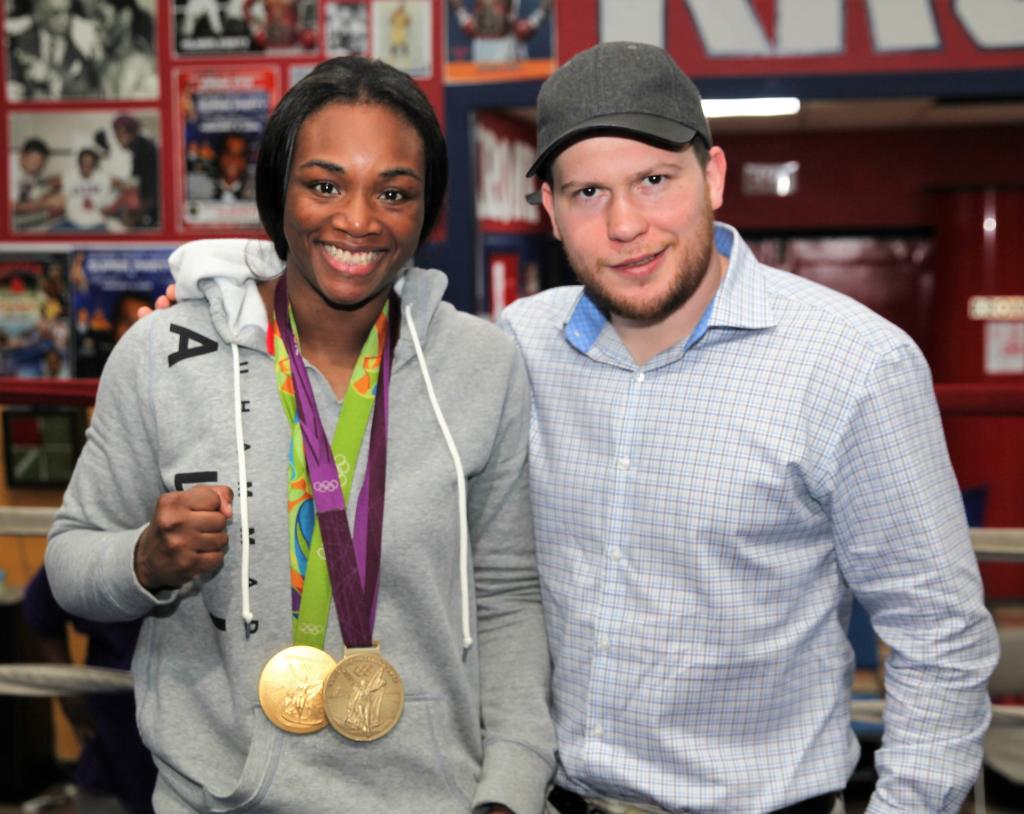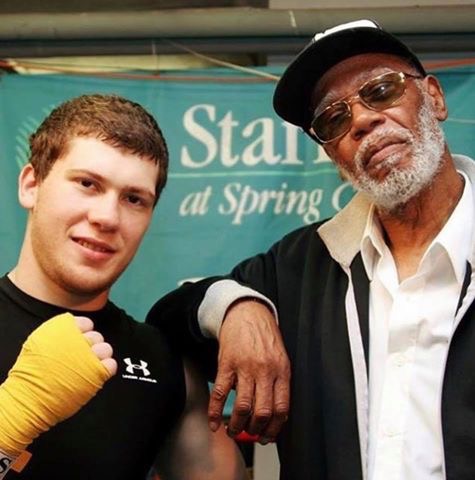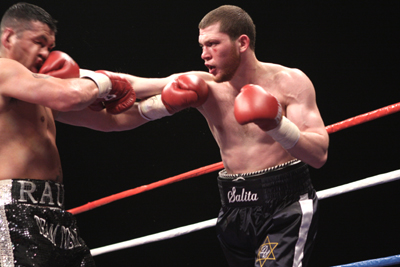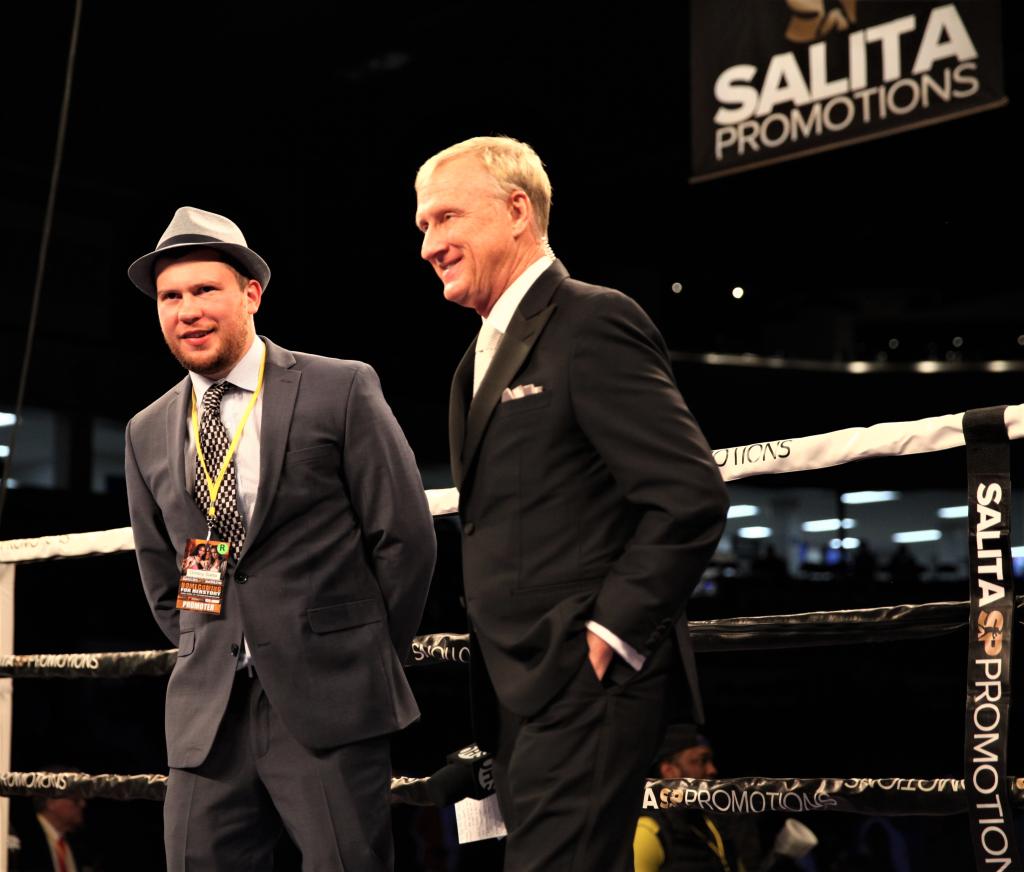Dmitriy Salita’s unlikely rise in boxing has certainly not been ordinary.
But Salita believes his story is a perfect encapsulation of the American dream.
“Boxing saved my life,” Salita told The Post. “Through hard work, you’re able to climb up the ladder of success and eventually make it. That, to me, is what the United States is about.”
Currently, Salita, now 42, runs a rapidly growing promotional company dubbed Salita Promotions. He’s assembled an impressive stable of fighters — most notably Claressa Shields, the first boxer, male or female, to be undisputed in two different weight classes. Salita Promotions also promotes Shohjahon Ergashev, Jarrell Miller, Jermaine Franklin, Vladimir Shistkin as well as a plethora of other highly-regarded prospects and contenders.
And recently earlier this year, Salita Promotions landed its first-ever multi-event television deal, signing with DAZN to produce a series called Big Time Boxing USA, a recurring set of cards taking place in Detroit.
The next card takes place Thursday night.
There was a time when Salita had nothing, however, and his current reality was just a far-fetched dream.
Salita was born in Odessa, Ukraine, but emigrated to the United States in 1991 as a child with his family to escape anti-Semitic persecution.
They settled in Flatbush, Brooklyn, with Salita and his father, mother, brother and grandmother sharing a one-bedroom apartment. They came with $300 and no ability to speak English.
From there, boxing provided Salita a pathway to success.
Four years after arriving in Brooklyn, Salita joined Starrett City Boxing Club, run by the famed Jimmy O’Pharrow. It was located in the basement of a parking garage, had no running water, no bathroom, no air conditioning and no heat.
But Salita was able to train with the likes of Zab Judah, Luis Collazo, Sadam Ali and Danny Jacobs, who all would eventually become world champions.
“Connecting to boxing and being good at it and loving it gave me an outlet and a vision to get out of my ghetto,” Salita said. “… That fire and that fuel to make it out of those surroundings served a great purpose.”
At the same time — when Salita was 14 years old — he found Chabad Lubavitch and slowly grew his Orthodox Jewish faith. He was a successful amateur, winning the U.S national championship and the New York Golden Gloves, the latter of which took place at Madison Square Garden.
He refused to fight on Shabbat, and faced disqualification until the tournament agreed to allow him to fight a different day. He fought with the Star of David on his trunks.
All around him, Salita could barely find anyone that looked like him or belonged to the same community.
But boxing was where he felt at home.
He turned pro in 2001, signing with legendary promoter Bob Arum. He went on to win the WBF world title and IBF and WBA international titles at welterweight along with the NABA light welterweight title.
City Boxing Club. Courtesy of Dmitriy Salita
He finished with a 35-2-1 record.
“These two very, in a way, opposite energies grew in me,” Salita said. “The boxing culture and the Chabad culture, which talks about using your talent and using your place in the world to make the world a better place.”
Throughout his career, Salita received ample hate regarding his Orthodox Jewish identity. Slurs were common after his fights.
But he’s never experienced what he’s endured in recent months.
“Certainly what’s happening today, it boggles my mind,” Salita said. “I’ve never experienced the level of anti-Semitism that the public tolerates in such a way. It’s very hard for me to digest and understand.
“You have to look inside and see what you can do to make yourself and your surroundings better. I grew up in a tough neighborhood of Brooklyn, I grew up fighting. I feel like now, when I walk on the streets, I have to look left and look right sometimes to make sure it’s safe. And I’ve never felt that. It’s quite sad, actually.”
Still, Salita believes sports can be used as a connector and that boxing can bring people together.
And he still has plenty left to give to boxing.
Big Time Boxing USA, though plenty of contenders fight on its cards, is aimed to give up-and-coming prospects a platform to grow their reputation and fanbases and make a name for themselves, as Salita himself once did.
Salita Promotions, understanding boxing is going through a “renaissance,” is constantly looking for new avenues and mediums to tell its fighters’ stories and build their brand. In an era where the best boxers often avoid each other, Salita is determined to deliver the opposite.
“I grew up in boxing, boxing is a sport that I love,” Salita said. “I’ve contributed most of my life to it. I grew up in New York City and started promoting, initially, my own fights. It was a very gradual process to acquire top talent and to make network relationships. We’ve progressed because of the talent I’ve been able to identify and develop. I’m happy and grateful that people took notice.
“I’m a very ambitious individual. You have to strive for the greatest. When I was a kid and started boxing, I wanted to be the best boxer in the world. And I worked very hard for it. And I believe my boxing career was my education for right now. There is no No. 1 in boxing as a promoter, there’s a couple of No. 1’s and it kind of fluctuates here and there. But I’m certainly striving for that goal.”
